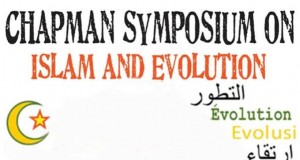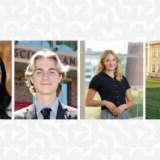Chapman Symposium on Islam and Evolution, Thursday 10/13
October 12, 2011
The EERC Symposium on Islam and Evolution was a great success! Please see the article in Happenings for the full story!
The Evolution Education Research Center Presents
Thursday, October 13, 2011
10 a.m. – 11:15 a.m.
Argyros Forum 202
Admission: Free
Speakers:
Brian Alters, Ph.D., Chapman University
Anila Asghar, Ph.D., McGill University
Jason Wiles, Ph.D., Syracuse University
While many Muslim scientists have comfortably reconciled evolution within their faith, the teaching of evolution varies greatly within and between Islamic countries. While students largely accept much of evolution, certain aspects of the science are widely rejected. It is apparent that students’ religious identities are important in shaping their scientific understandings, and the message they receive in schools depends greatly upon their position in a very complex sociopolitical landscape.
Dr. Brian Alters (Chapman University), founder and director of the Evolution Education Research Center (EERC) at Chapman, will explain some of the major issues involving Christianity and biological evolution, and then segue into current research by members of the EERC involving Islam and evolution.
Dr. Anila Asghar (McGill University) will share the perceptions of Muslim teachers, scientists, and secondary students from six predominantly Muslim cultures and communities about biological evolution (Canada, Indonesia, Egypt, Lebanon, Pakistan, and Turkey). She will share the conflicting understandings that these groups have about the science of evolution in relation to their Islamic beliefs. This discussion will illuminate the similarities and differences between Islamic and Christian perspectives on creationism and evolution.
Building on previous international comparisons of public opinion on evolutionary science, Dr. Jason Wiles (Syracuse University) will explain that surveying peoples’ attitudes and understandings of science is no easy task. It would appear that much is lost in translation between cultures where the nuances of boundaries between science and religion are concerned.
For more information please see the Symposium Article in Happenings


